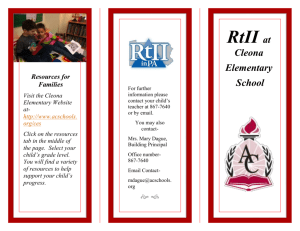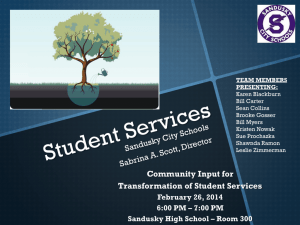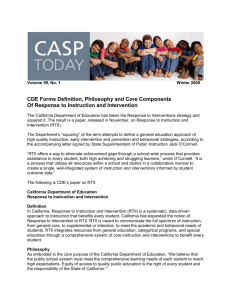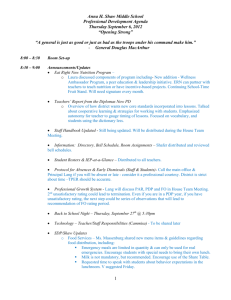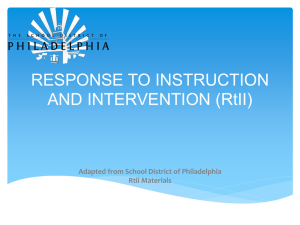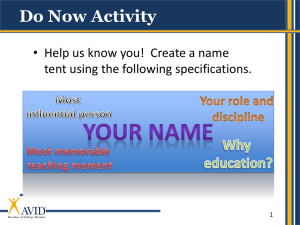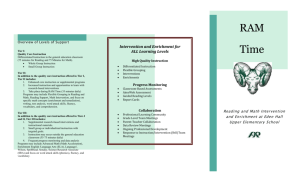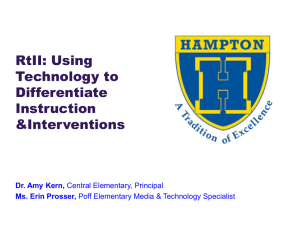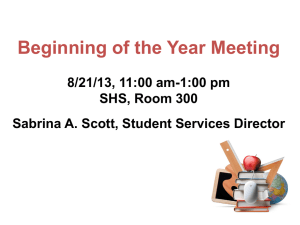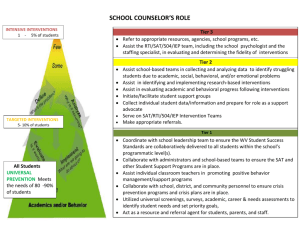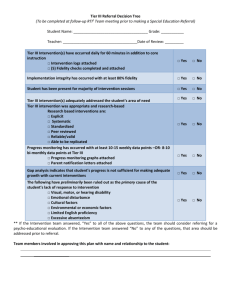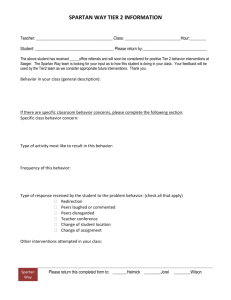RtII
advertisement
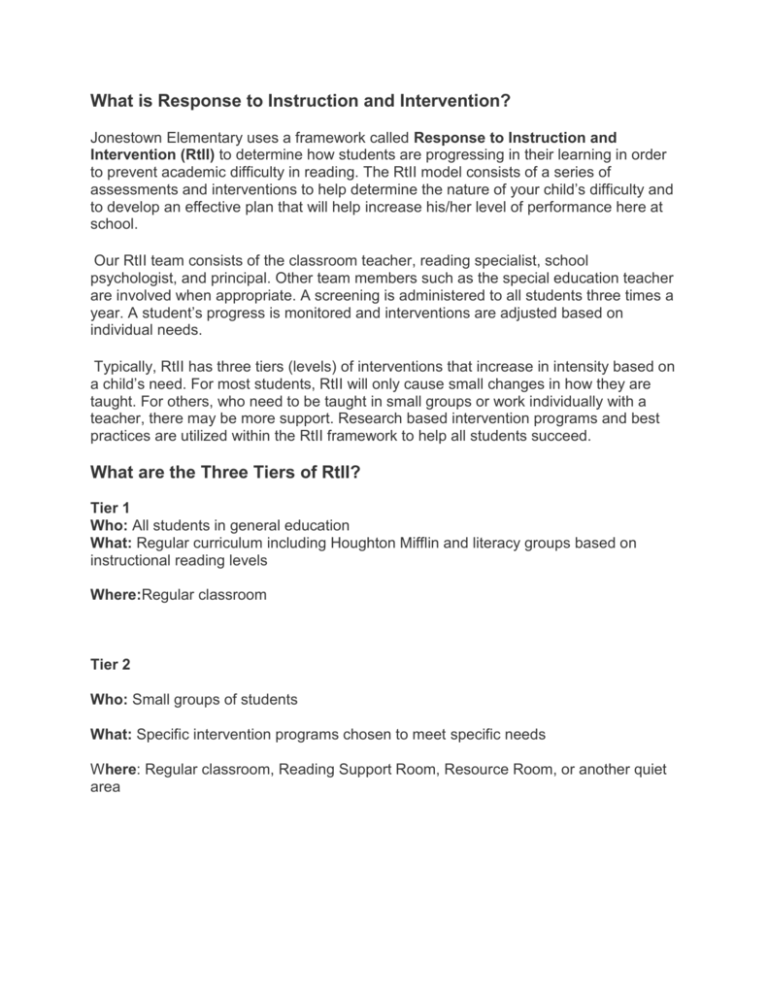
What is Response to Instruction and Intervention? Jonestown Elementary uses a framework called Response to Instruction and Intervention (RtII) to determine how students are progressing in their learning in order to prevent academic difficulty in reading. The RtII model consists of a series of assessments and interventions to help determine the nature of your child’s difficulty and to develop an effective plan that will help increase his/her level of performance here at school. Our RtII team consists of the classroom teacher, reading specialist, school psychologist, and principal. Other team members such as the special education teacher are involved when appropriate. A screening is administered to all students three times a year. A student’s progress is monitored and interventions are adjusted based on individual needs. Typically, RtII has three tiers (levels) of interventions that increase in intensity based on a child’s need. For most students, RtII will only cause small changes in how they are taught. For others, who need to be taught in small groups or work individually with a teacher, there may be more support. Research based intervention programs and best practices are utilized within the RtII framework to help all students succeed. What are the Three Tiers of RtII? Tier 1 Who: All students in general education What: Regular curriculum including Houghton Mifflin and literacy groups based on instructional reading levels Where:Regular classroom Tier 2 Who: Small groups of students What: Specific intervention programs chosen to meet specific needs Where: Regular classroom, Reading Support Room, Resource Room, or another quiet area Tier 3 Who: Individual students or small groups What: Specific intervention programs chosen to meet specific needs with greater intensity Where: Reading Support Room or Resource Room Why is RtII Important? RtII is a framework to help identify and support students before the difficulties they encounter with reading become more serious. One of the most commonly cited benefits of an RtII approach is that it eliminates a “wait to fail” situation because students receive help promptly in their classroom. The progress monitoring techniques utilized within this framework provide instructionally relevant information to drive instruction. How can Parents be Involved? The single most important way a parent can be involved in RtII is to have open communication with their child’s teacher. This means that teachers and parents are openly sharing information about the student that is directly related to their learning style, school success, and progress. Parents can also get involved by talking with their child about school, helping them with homework, attendance, and encouraging healthy living styles. Asking children about school and allowing them to share about their day is a great way to learn what they like and dislike about school. Parents may be asked to attend a meeting at school to discuss their child’s program and progress. Parent involvement is welcomed and highly regarded at Jonestown Elementary as we continuously strive to help each child succeed in school.
